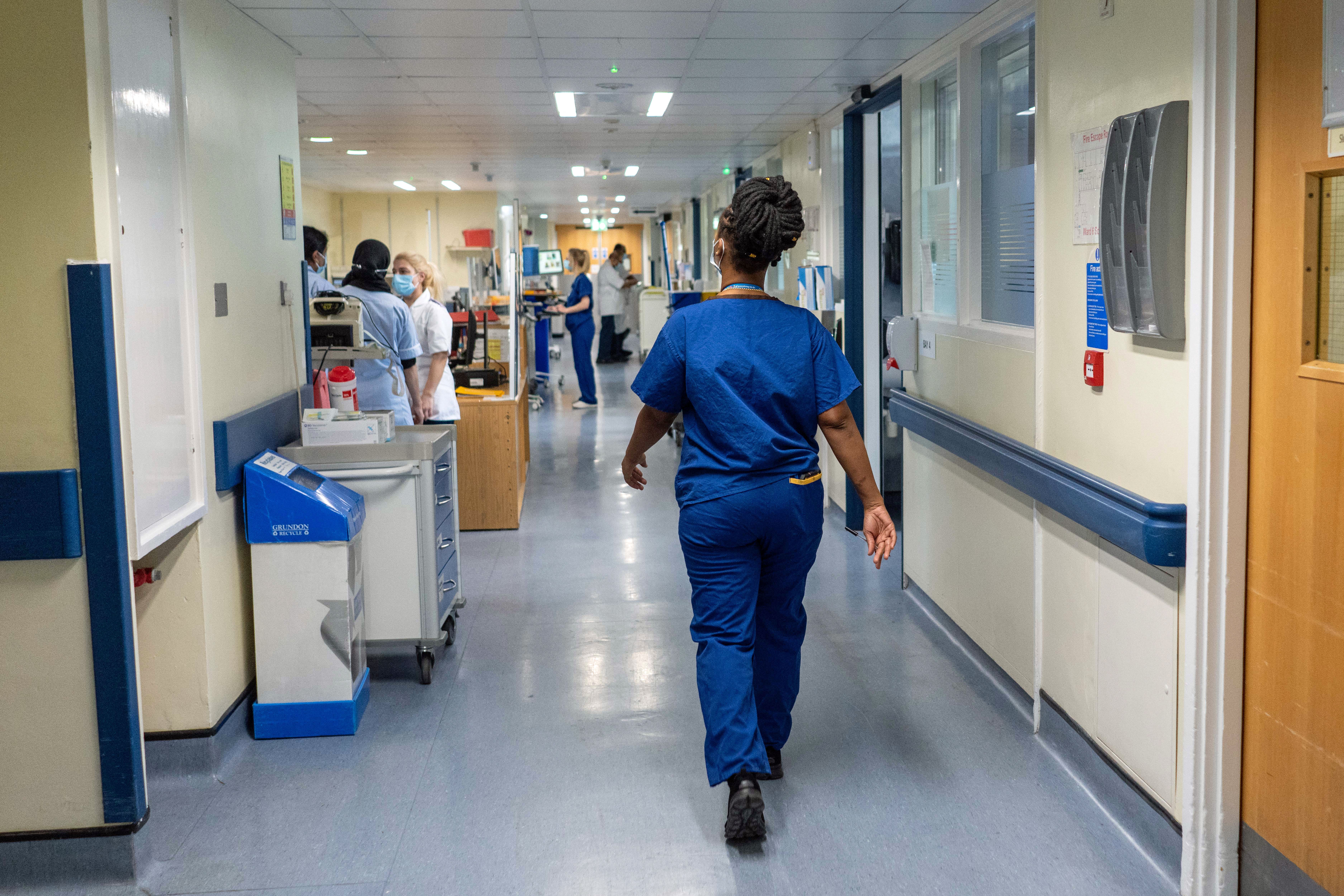I’m trans and fractured my spine – why don’t I belong on a women’s ward?
I look like a woman, sound like a woman and live as a woman, writes Diana Thomas. But the Conservatives believe, when in hospital, I don’t deserve the same kindness and compassion as other patients


Back in May, I spent 12 nights in the women’s spinal ward at University Hospital, Southampton. For most of that time, I was flat on my back, forbidden to move until my crumbling backbone had been reinforced with titanium rods and screws.
When it came to washing my body or clearing up after me, I was entirely dependent on nurses. They saw, wiped and dried every last inch of me.
A few days before my discharge, two nurses came to my bed, pulled the curtains closed for privacy and asked if I would mind telling them what it was like to be transgender.
We started chatting and at one point I said: “If you took every woman in this ward, stuck us all into stirrups and asked a gynae to take a good look, they wouldn’t be able to tell the difference between me and everyone.”
The nurses burst out laughing. “Oh, we know!” one of them exclaimed. “We’ve all been talking about it in the staff room. It looks just like the real thing!”
Yes, it does. I have inner and outer labia, a clitoris and a vagina, all comprised of my own flesh and blood. My oestrogen levels are entirely normal for a post-menopausal woman who is taking HRT, as I do, and my testosterone is virtually non-existent.
My NHS records state that I am female, as does my passport – and I have been treated as such across four major operations in as many years, all at different hospitals. I’ve also been admitted to a fifth hospital with post-operative complications, and have just concluded 25 radiotherapy sessions at a sixth.
At no time has my being trans caused the slightest concern to other patients. The only one in the spinal ward who even knew about it said: “Honestly, love, I just don’t care.”
Nor have I been on the receiving end of a single iota of prejudice.
That is actually my lived experience in general. Either people have no idea that I’m trans, or they’re not bothered, or they’re actively supportive.
Yet the issue of trans women is apparently such a major one – and the threat we supposedly pose to the privacy, safety and human rights of “biological women” is so great – that the Conservative Party is vowing to ban trans women from female hospital wards.
This is part of what the health secretary Steve Barclay is calling “a common-sense approach to sex and equality“, part of the Tory fightback against “woke” ideology.
There’s just one problem: the proposal is neither commonsensical nor realistic.
For a start, any trans woman who has a Gender Recognition Certificate (GRC) is legally female – so how can she possibly cease to be female once she enters a hospital?
And even if she doesn’t have a GRC, the rights of trans people have been established by rulings of the European Court of Human Rights and legislation in this country. To create new legislation that specifically discriminates against trans women – the first deliberate rollback of minority rights in the past half-century – would be to enter a political, legal and moral minefield.
Then there’s the minor matter of medical science. The “common-sense” view of gender identity is that there is an absolute biological division between male and female. Thus, there is really no such thing as gender transition because someone like me remains forever biologically male.
There’s just one problem with this point of view. It is, to use a gender-loaded term, total bollocks.
According to Dr Vickie Pasterski, a clinical psychologist with a PhD in behavioural neuro-endocrinology, the science of gender, sex differentiation and determination is not strictly binary: “There is absolutely no clear-cut definition of biological sex. It’s a complex interaction of genetic, hormonal and environmental factors.”
If this column were longer, I’d go into those interactions in more detail. Suffice it to say that all humans begin their lives as female. Genetically male babies are then triggered by androgens in the womb to develop male sex organs. But sometimes that trigger doesn’t work. So they are, for example, born looking like little girls, but with testes where a girl’s ovaries would be.
Likewise, gender incongruity – the mismatch between physical and psychological identities – is also now believed to be a congenital condition, caused by hormonal misfires in the womb, but in this case, affecting the development of the brain.
So it’s possible that my baby brain did not get enough testosterone. It failed to fully develop away from its default female state, making me, in that specific respect, a biological, natal woman.
That is open to debate. But it’s indisputable that I was born human, with human needs, human feelings and human rights. And if I fall sick, I should be treated with the same kindness and compassion as anyone else.
My name is Diana. I look like a woman, sound like a woman and live as a woman. Is it really too much to ask to be treated in a women’s ward?




Join our commenting forum
Join thought-provoking conversations, follow other Independent readers and see their replies